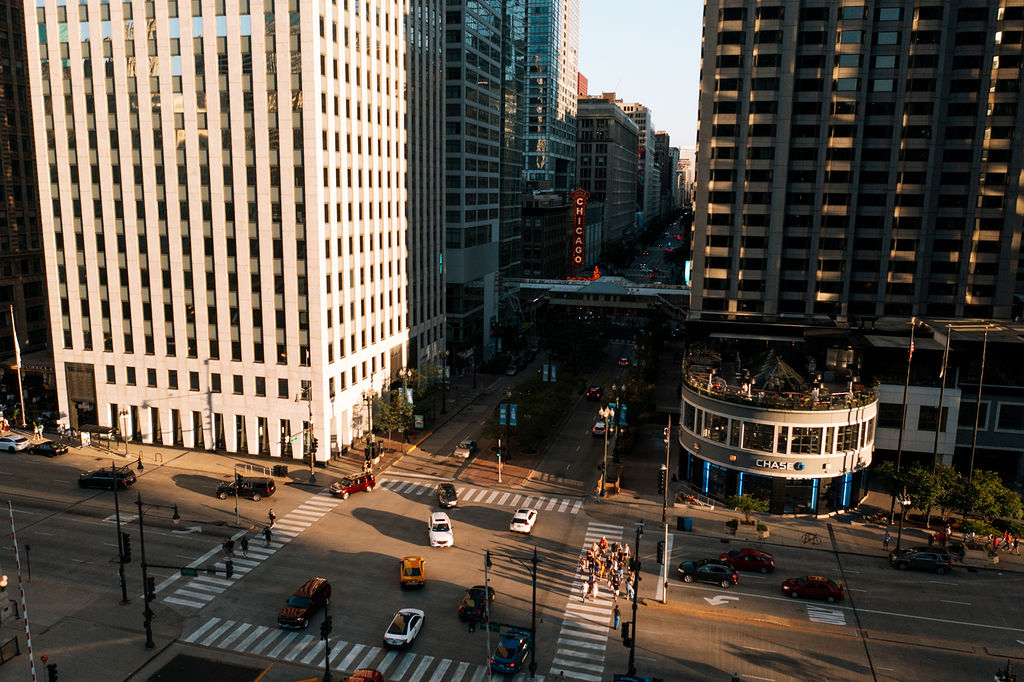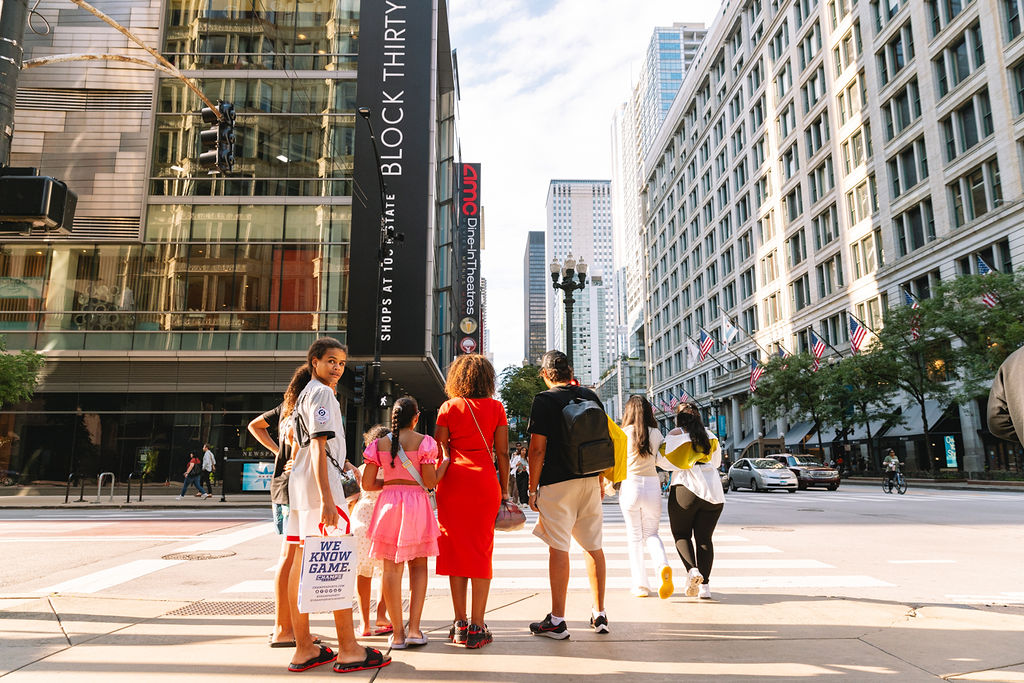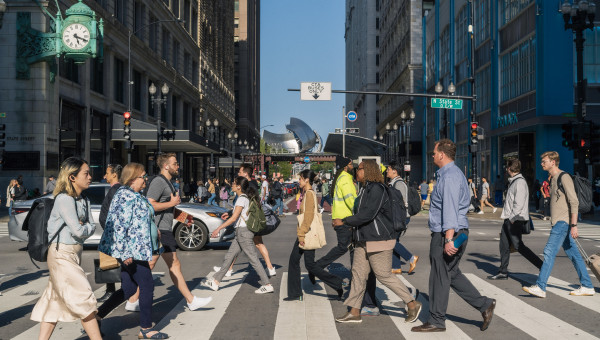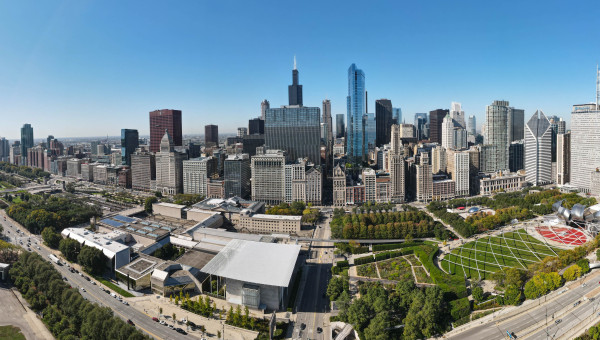Posted 2 years ago in Trending
4 MIN READ – Business Improvement Districts (BIDs) are a powerful tool that can transform neighborhoods and cities. By bringing together local businesses, property owners, and community stakeholders, BID legislation can bring about positive change, fostering economic growth, enhancing public spaces, and creating vibrant communities.
Let's explore what BID legislation could mean for the state of Illinois and the city of Chicago.
What is a Business Improvement District (BID)?
A BID is a public-private partnership that allows businesses and property owners within a defined area to collaborate on improvements and services that benefit the entire community. Through BID legislation, businesses pool their resources through a self-imposed assessment to fund various projects and initiatives aimed at making their area more attractive, welcoming, and economically viable.

Where do BIDs exist, and why doesn’t Illinois currently have any?
BIDs are the standard economic tool for self-financed districts in 45 states and multiple countries abroad. Unfortunately, Illinois is one of only five states in the United States who don’t have the state legislation in place to allow for BIDs. In the U.S., BIDs are found in neighborhoods representing all socio-economic levels, races, and ethnicities.
Numerous cities across the United States have seen tremendous success with BID legislation. New York City's Times Square, once known for its decline, was transformed into a world-renowned destination through the efforts of a BID. Similar successful initiatives have propelled downtowns in Philadelphia, Los Angeles, and Seattle.

How does funding for BIDs work? Do they cost more for the property owners?
BIDs are geographical areas where local stakeholders implement a self-imposed assessment to fund enhanced maintenance, development, and/or promotional services in their district.
- These are self-initiated assessments, not taxes. Only properties within the district are assessed at a self-determined, customized assessment.
- Often, the assessment can save the property owner time, money, and resources associated with the cost of individualized services and contracts, which can instead be handled over a larger geography at a lower rate (ie: snow removal, landscaping, sidewalk cleaning, security, ambassador programs, etc.).
- 100% of revenues must be spent within the district boundaries according to a budget approved by its elected Board for its intended purposes.
- BIDs provide a multi-year revenue-stream to fund enhanced services in a district to support businesses
- BIDs provide an additional economic tool for communities in Illinois to self-fund enhanced services in their districts at their own initiative, if they choose.
- BIDs would only exist in districts that proactively seek them, they are self-imposed.

Potential benefits for Illinois and Chicago
- Economic Growth and Recovery: BIDs have a track record of boosting economic activity. By enhancing the overall attractiveness of an area, BIDs can attract more visitors, shoppers, and tourists, leading to increased sales for local businesses. This, in turn, generates higher tax revenues for both the state and the city.
- Property Value Increase: Well-maintained public spaces and improved infrastructure can lead to higher property values. BIDs often invest in beautification projects, street cleaning, landscaping, and maintenance, which collectively contribute to the overall aesthetic appeal of a neighborhood and attract potential investors.
- Community Engagement: BIDs provide a platform for local businesses, residents, and stakeholders to collaborate on decisions that shape their community. This fosters a sense of ownership and pride, leading to a more engaged and vibrant local population.
- Enhanced Public Spaces: BIDs can transform public spaces into inviting and functional areas. This might involve creating pedestrian-friendly zones, adding public art, setting up seating areas, and organizing events that bring people together.
- Safety and Security: BIDs often invest in security measures to create a safer environment for businesses, residents, and visitors alike. Examples include increased lighting, surveillance systems, ambassador programs, and partnerships with local community groups and law enforcement.
- Marketing and Promotion: BIDs actively promote their districts, attracting more foot traffic and customers. Marketing campaigns, events, and initiatives can help create a unique identity for the area, drawing people in and encouraging them to explore.

What could this mean for the Chicago Loop and current Special Service Areas?
Without the ability to create BIDs, Chicago has relied on less flexible Special Service Area models throughout the city’s neighborhoods for many years. BIDs do not have to replace SSAs. BIDs and SSAs would run as two parallel programs, but BIDs are a more flexible tool for some areas, when SSAs are not feasible. Neighborhoods can select whichever model is the best fit for their area, but they cannot have both overlapping.

Chicago Loop Alliance has long served as the sole service provider for the oldest and largest Special Service Area (SSA#1-2015) in the city of Chicago, which exists along State Street, and parts of Wabash and Dearborn, from Ida B. Wells to Wacker. The program has produced impressive results including an ambassador program that has been used as a model throughout the city, an improved visitor experience, and award winning events like Sundays on State. With the implementation of a BID, the benefits of such a district could be distributed to property owners throughout the Loop district, not solely State Street, including beautification and landscaping; destination marketing; public art and placemaking initiatives; consistent research and reporting; and more.
The future of Chicago
Business Improvement District legislation holds the potential to revolutionize the state of Illinois and the city of Chicago. By uniting local businesses, property owners, and community members, BIDs can drive economic growth, enhance public spaces, and create vibrant neighborhoods that residents and visitors alike can enjoy. With careful planning, collaboration, and support from stakeholders, BID legislation could be a transformative force for the betterment of Illinois and Chicago.



